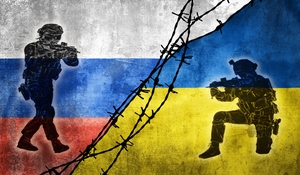Countering Russia Through Irregular Warfare: Cost Imposition in Ukraine and Beyond

Speaker(s): Meredith, S. (National Defense University)
Date: 8 March 2022
Speaker Session Summary
SMA hosted a speaker session with Dr. Spencer Meredith (Professor of National Security Strategy, National Defense University) as part of its SMA EUCOM Speaker Series.
Russia’s invasion of Ukraine is exposing that it was not well equipped to carry out a large-scale military invasion. The invasion is in support of Russia’s security outlook, including that NATO’s spread into former Soviet States is an existential threat. Dr. Meredith commented that Putin is interjecting his KGB mindset into the Kremlin’s foreign policy decisions. Even before the Soviet Union, Russia has always been a militarily offensive country. Russia’s history of being an aggressor is partially because being offensive was frequently the best way for it to protect its massive border. Its tradition of being a conqueror led Russian leadership to create a kleptocracy, or a country built on serfdom for the success of its leaders. To protect its kleptocracy and subdue civil unrest, Russia also adopted a system of russification built on ethnically charged policy.
Surprisingly, Ukraine is fighting back against Russia’s invasion exceptionally well. This is even despite Russia’s large overmatch capabilities and ability to carry out cyber-attacks and electronic warfare. Ukraine has been able to slowdown Russia’s advancing forces because of recent military reforms, Ukrainians’ will to fight, their ability to fight an irregular war, Ukraine’s geographic features, and Russian miscalculations and low morale. Dr. Meredith commented that Russia was not anticipating a drawn-out conflict, making the current war especially damaging to Russia’s international image. Ukraine’s success in slowing Russia’s larger armies has surprised many of its Western European partners. To better equip allies and support Ukraine in the future, Dr. Meredith commented that creating a standing information warfare task force, committing to the completion of intellectual research before a military operation, and more frequent and higher quality wargaming is needed.
Comments